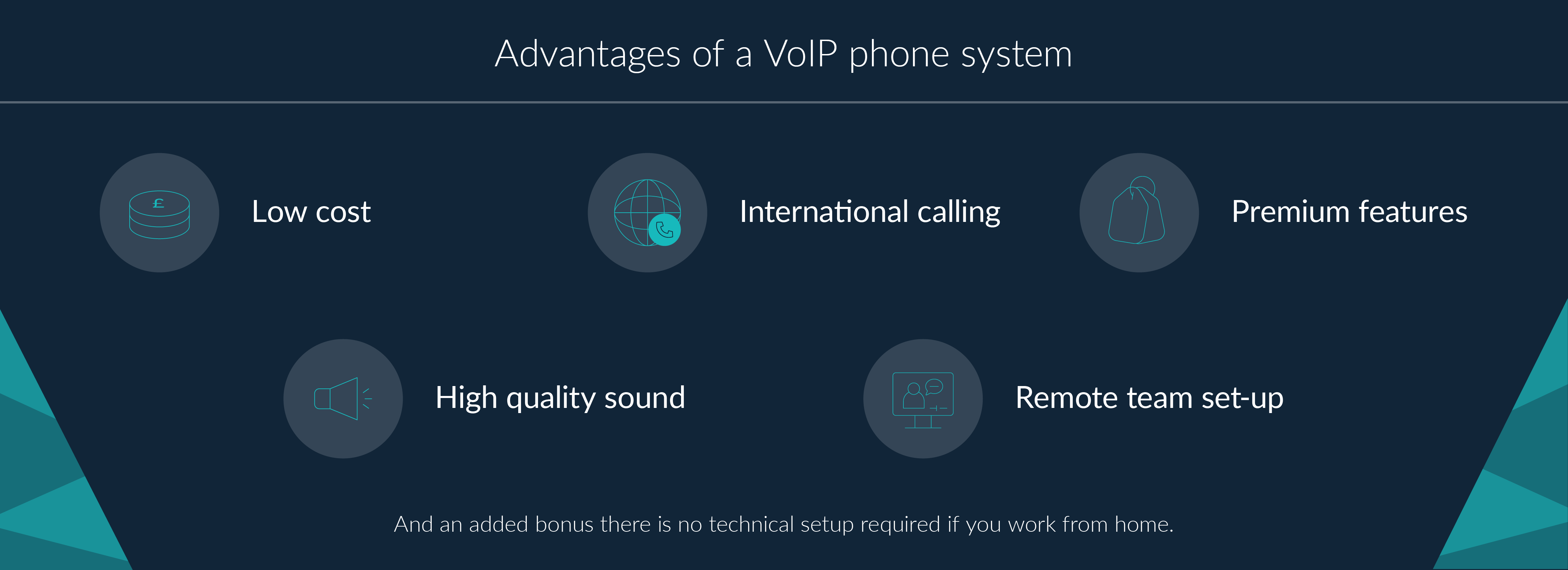Another one of those IT jargon words is VoIP. And trust us when we say there is no way you will ever guess what it means. VoIP essential allows for multiple communication technologies (including audio, video and text) to work together in one system using the internet – pretty handy, right?!
There is so much more to VoIP so we let us explain how VoIP works and why cloud based telephony services may be just right for your business needs.
What’s VoIP?
VoIP stands for ‘voice over internet protocol’ and is a phone system by which an internet connection is used to hold telephone calls, instead of utilising traditional landlines. If you have an internet connection, it removes the need for traditional phone services or wires. All you need is internet with a suitable speed, and a VoIP service provider to handle any calls that come through.
A VoIP service provider takes care of everything for you – you just have to plug in your digital IP phone and connect it to the internet. VoIP works by converting phone calls into data sent over the internet. This is done through strong Wi-Fi signal, or a direct ethernet cable if required.
With a VoIP phone system, you are not bound to a desk or office, so it is great if you run a remote-first company or would like more flexibility with working location. With an internet connection, you use a VoIP phone number that can run via an app to turn any mobile device or computer into a phone.
What is a VoIP phone system?
The primary difference between landline systems and a VoIP system is that landline phones are physically hardwired into a location, whereas VoIP phones use the internet to make and receive calls and are therefore not bound to a particular location.
It works by connecting your phone to a switch or a router in the LAN – Local Area Network. As you dial a number, the VoIP service provider is automatically notified to call the number. The VoIP service connects the call and exchanges data signals from your phone, which are then converted back into the audio you hear.
One main reason why people choose a VoIP phone rather than a standard landline phone is due to the lower startup investment required. It also means you can save money on long-distance phone calls which would be expensive in a standard system.
What equipment does a VoIP system need?
Firstly, a broadband connection is essential for a VoIP service to function effectively. As for specific equipment, you can either use hard phones or soft phones.
A hardware-based phone looks just like a standard desk phone, but is connected to the internet in order to make calls. A software-based phone is installed on your computer, and uses software to make calls. If you choose this style of VoIP service, you can also get a headset that is specifically designed to work with VoIP and allows you to be hands-free while working.
Advantages of a VoIP phone system
VoIP phone systems have many advantages in business, including being less expensive than traditional landline systems.

Low cost: businesses can lower their phone bills by moving away from standard landlines, and considering all of VoIP’s capabilities it is relatively inexpensive.
International calling: with a VoIP phone system, you can make a call to anyone across the globe with extremely low rates compared to traditional phone systems
Premium features: leverage optional advanced features such as call recording, waiting list queues, and auto call attendants to improve your business or customer service
High quality sound: audio is not fuzzy or muffled like in some traditional systems
Remote team set-up: VoIP services can be used to provide phone access wherever staff are situated
Bonus: no technical setup required if you work from home
VoIP is an easy service to set up and use on a daily basis. As long as you can connect to the internet, you can make calls!


